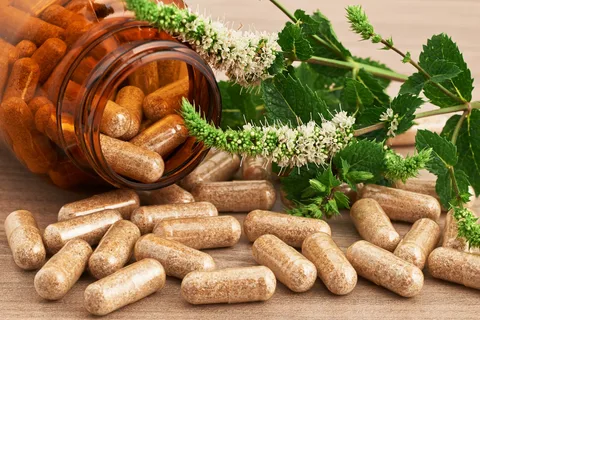Ashoka, scientifically known as Saraca indica, is a revered medicinal tree native to the Indian subcontinent. For centuries, various parts of the Ashoka tree, particularly its bark and flowers, have been used in traditional Ayurvedic medicine to address a wide range of health concerns. Ashoka supplements have gained significant popularity in recent years due to their potential therapeutic benefits for women’s health, reproductive wellness, and overall well-being. In this comprehensive guide, we will delve into the science behind Ashoka supplements, explore their diverse range of health benefits, dosage recommendations, and safety considerations, providing you with valuable insights into this extraordinary botanical remedy.
Understanding Ashoka
Origins and Traditional Use
Ashoka holds a prominent place in traditional Ayurvedic medicine, where it is revered as a potent herbal remedy for women’s health and fertility. The bark and flowers of the Ashoka tree have been traditionally used to support menstrual health, alleviate gynecological disorders, and promote reproductive wellness. In Sanskrit, the word “Ashoka” translates to “without sorrow,” reflecting the esteemed status of this botanical treasure in ancient healing traditions.
Active Compounds
The therapeutic effects of Ashoka are attributed to its rich array of bioactive compounds, including flavonoids, tannins, saponins, and glycosides. One of the key constituents of Ashoka bark is saracine, a bioactive alkaloid known for its uterine-stimulating and estrogenic properties. Additionally, Ashoka contains antioxidants, phytoestrogens, and anti-inflammatory agents that contribute to its overall health-promoting properties.
Health Benefits of Ashoka Supplements
Menstrual Health
Ashoka supplements are widely recognized for their benefits in promoting menstrual health and alleviating menstrual disorders. Research suggests that Ashoka may help regulate menstrual cycles, reduce menstrual pain and cramping, and alleviate symptoms of premenstrual syndrome (PMS) and menopause. Ashoka’s uterine-stimulating and hormone-balancing effects may help support hormonal equilibrium and menstrual regularity in women.
Uterine Health
Ashoka has been traditionally used to support uterine health and alleviate gynecological conditions such as uterine fibroids, endometriosis, and pelvic inflammatory disease (PID). The bioactive compounds found in Ashoka, such as saracine, may help reduce uterine inflammation, shrink fibroids, and promote tissue repair and regeneration in the reproductive organs. Ashoka supplements may also help alleviate symptoms of pelvic pain, dysmenorrhea, and infertility.
Reproductive Wellness
Ashoka supplements may help promote reproductive wellness and fertility in women. Studies have shown that Ashoka extracts may help improve ovarian function, enhance follicular development, and regulate ovulation, leading to improved fertility outcomes. Ashoka’s hormone-balancing effects may help restore hormonal balance and optimize reproductive health, making it a valuable remedy for women struggling with infertility or reproductive disorders.
Anti-Inflammatory Effects
Ashoka exhibits potent anti-inflammatory properties, which may help reduce inflammation and alleviate symptoms of inflammatory conditions such as arthritis, rheumatism, and inflammatory bowel disease (IBD). Ashoka supplements may help modulate the body’s inflammatory response, leading to reduced pain, swelling, and joint stiffness in individuals with inflammatory conditions.
Antioxidant Protection
Ashoka contains antioxidants that help neutralize free radicals and protect cells and tissues from oxidative damage. Antioxidants found in Ashoka, such as flavonoids and tannins, scavenge free radicals, inhibit lipid peroxidation, and reduce oxidative stress in the body. By reducing oxidative damage, Ashoka may help prevent cellular aging, chronic diseases, and degenerative conditions associated with oxidative stress.
Dosage Recommendations
Standardized Extracts
Ashoka supplements are available in various forms, including capsules, tablets, powders, and liquid extracts. Dosage recommendations for Ashoka supplements typically range from 500 to 1000 milligrams per day, standardized to contain a specific percentage of bioactive compounds such as saracine. It is advisable to follow the dosage instructions provided on the product label or consult with a qualified healthcare professional for personalized recommendations.
Safety Considerations
Generally Recognized as Safe
Ashoka supplements are generally considered safe for most individuals when taken at recommended doses. However, some individuals may experience mild side effects such as gastrointestinal upset or allergic reactions. It is essential to start with a low dose and monitor for any adverse reactions, discontinuing use if any symptoms occur.
Pregnancy and Breastfeeding
Pregnant and breastfeeding women should exercise caution and consult with a healthcare professional before using Ashoka supplements. Limited research is available on the safety of Ashoka during pregnancy and lactation, so it is best to err on the side of caution and avoid use unless directed by a qualified healthcare provider.
Drug Interactions
Ashoka supplements may interact with certain medications, including hormone replacement therapy (HRT) and hormonal contraceptives. Individuals taking prescription medications should consult with their healthcare provider before commencing Ashoka supplementation to prevent potential interactions and adverse effects.
Conclusion
Ashoka supplements offer a wealth of potential health benefits, ranging from menstrual health and uterine support to reproductive wellness and anti-inflammatory effects. Whether you’re seeking relief
- Benefits of Blessed Thistle Supplements - March 29, 2024
- Benefits of Bladderwrack Supplements - March 29, 2024
- Benefits of - March 21, 2024

